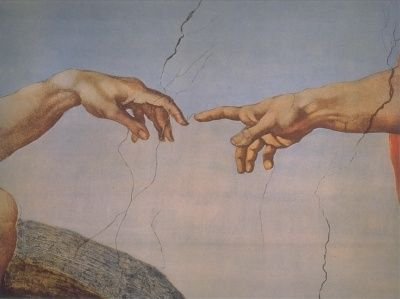A Discussion of God in 2019

Let’s talk about God. Most millennial's would run at the thought of this, however, The American University of Paris’ new club does just that. The “Let’s Talk about God” club, started by Baer Lanfield, President and Imaniushindi Fanga, Vice-President, is an open forum where students can safely and respectfully talk about, God, religion and their personal beliefs and/or problems surrounding both.
“I had the desire to do a club. I spoke to my friend Imani about it and we both agreed to do one around God. I hope it’s positive and I hope people don’t get too fired up,” Lanfield said. “I think the main thing here is to be refined and encouraged. Building community around different mindsets and seeing the bigger broader perspective by hearing other people’s opinions apart from your views.”
The club allows one person each meeting to share a personal experience and/or story and then posing a question to the participants at the end of their anecdote. The meeting regularly starts at 6 p.m., but, Lanfield anticipated for members to be late since it was the first meeting. A good thing, as there were about 12 students ready to start on time. By 6:30 there were 20 students and one professor.
The meeting started with everyone being handed two pieces of paper. The first sheet was to write your name, where you’re from and either a one, two or three—the number corresponding to the strength of your belief in God or a higher power. One being a strong believer, two being not so sure, and three being, essentially atheists.
Students and one professor sitting against the wall represent group three; atheists as they discuss their reasons for their views. Image Credit: Ali BenzeraraThe second piece was to write a question about God or religion. From there, the questions are collected and randomly drawn out of a cup to lead discussion further.
Since it was the first meeting, Lanfield shared his own story about growing up Christian and then finding his own sense of religion and God while doing a summer internship in France. He then ended his story with the question: How can you be so sure of what you believe in?
A student sitting with group three said, “I’m an atheist, but if I could choose to believe I would,” said Michael Justice, 21.
From there the discussion quickly broke out into a full, articulate, well-discussed conversation between peers. Group three started off with a response to Lanfield but he quickly ended his response by asking a question to the group one. One or two members from group one responded, and then posed a question back to group three. This cycle repeated for most of the meeting, with the group two intermittently responding by asking clarifying questions to both sides.
One question, asked by group two—centered on the burden of proof, and observed, what counts as proof and how do you validate it — it began to make some of the participants defensive. Some members of group one responded, explaining that their proof comes mainly from personal experiences, rather than proof given through religious texts and beliefs. One member even shared that her experience with faith and proof had come very recently after her father died. Her proof was in the way her father sent her messages after his death, in the form of strange occurrences and dreams. This brought up the question of why people want religion.
Group one, the believers, listen and ait to respond as a question regarding ethical dilemmas of religion. Image Credit: Ali Benzerara
One point brought up by a member of group three was that even though they aren’t believers of God, whether it be because of ethical problems with religion, or lack of proof—most agreed that the one thing most people are fascinated with is life after death. This was a large part of the discussion, and half of the room took it from a very “godly” perspective while others took it from a very different, more grounded approach.
Professor Feltham, philosophy professor at AUP, joined the meeting as well, giving input on his ethical problems with religion, as well as touching upon the theme that everyone seemed to be relating on: life after death, or the lack of.
Usually, university professors are wary of sharing their political and religious views with students, however, Feltham said he knows Lanfield as a student, trust him and knew he would run the meeting sincerely and with the best intentions.
“I was absolutely amazed at how articulate people are and how many of these really serious philosophical problems, for me, were actively struggling with and thinking about these problems, and had great stories about them as well. For me, I would love to have a class that goes as well as the meeting did,” Feltham said.
Even though there was a great discussion, some members thought the discussion could have been more focused, productive and structured.
“I brought up the idea of proof and what that means, but it seemed like my question as well as other questions kind of just died and weren’t really answered. I wish people took it upon themselves to further the topic and build a rhetorical debate,” said AUP student, Jill Campbell, 20.
All in all, the meeting was very successful, and the task of, “openly and freely talking about God in a safe, respectful environment” was achieved. The next club meeting will follow the same format, with a new lead speaker. The meetings are not regularly set and are on a “to be announced” basis. Please email the club president, Baer Lanfried, at a97176@aup.edu to find out when the next meeting will be held.









